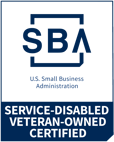Improving your organization's program management capabilities is a complex task that can take weeks to cover. However, in this blog post, we will focus on a few reasons why programs fail and discuss strategies to enhance program management.
1. Recognizing Programs as Investments:
Programs are investments made by organizations to provide services to customers, often citizens, and funded by taxpayers. It's essential to think about how we invest our resources and time in these programs. To do this effectively, organizations need to shift their thinking from doing things right to doing the right things.
2. Asking the Right Questions:To make sure your organization is investment-based, ask yourself these questions:
- Are you looking to invest in the things that yield the highest return on the money invested?
- Is your organization centered around a program of projects, focusing on executing the program against the plan, rather than only completing individual projects and meeting schedules?
- Does your organization schedule against its priorities and focus on meeting deadlines for these priorities?
3. Understanding Program Management:
Programs are groups of related projects or activities that contribute to the same business strategy. To enhance program management, organizations must group projects together, focus on achieving similar business strategies, and manage them collectively.
4. Reasons for Program Failure:
Programs can fail for various reasons, but we will concentrate on three main areas: people, processes, and communications.
- People: Ensuring the right people with the proper skills are in place is crucial. Employee engagement and motivation are also essential for optimal performance. Providing team members with the right tools and techniques is vital for success.
- Processes: Establishing clear accountability for results and understanding interdependencies between projects can help organizations focus better. Implementing proper measurement, focusing on quality deliverables, and adopting a consistent methodology for planning and executing projects are also necessary.
- Communications: Clearly defining and communicating goals to all stakeholders is vital. Stakeholder engagement must be continuous, and organizations must maintain consistent messaging throughout their communications.
5. Adapting to Real-World Challenges:
Programs must adapt and flourish in the real world, where various challenges such as vendor issues, workforce reductions, budget cuts, and even global pandemics can arise. Fostering an environment that supports awareness, knowledge, and action is essential for success.
6. Common Issues and Results:
Some common issues in program management include poorly defined outcomes, scope creep, unrealistic deadlines, inadequate risk management, lack of defined roles and accountability, poor performance measurement, insufficient reporting and follow-up, and inadequate skills and training. These issues can lead to late projects, cost overruns, and miscommunication with leadership.
Conclusion:
To improve program management capabilities within your organization, it's crucial to address the issues mentioned above and implement strategies that focus on people, processes, and communications. By doing so, organizations can enhance their program management and ultimately achieve better results from their investments.
If you're interested in learning more about program management, consider enrolling in our upcoming course Program Evaluation and Evidence-Based Analysis on September 18-19, 2023. Our course is designed for individuals who will lead or play a key execution role in performance improvement initiatives in their organization focusing on the evaluation of programs using quantitative and situational analysis.













